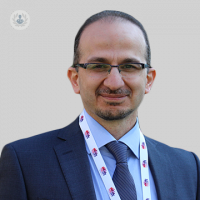Getting to grips with bariatric surgery
Escrito por:Bariatric surgery is a group of procedures that helps obese and overweight patients to lose weight. These procedures are fairly serious and will usually follow a period of natural weight loss through a healthy diet and exercise by the patient. Mr Ali Alhamdani, a leading bariatric surgeon, explains why bariatric surgery may be needed, the risks involved and how the recommended procedure is chosen for the patient.
Why do I need bariatric surgery?
Many patients come to me and ask me why they need bariatric surgery or should they have bariatric surgery. To answer this question, I explain that the bariatric surgery we offer the patient is to help maintain their weight loss. Bariatric surgery not only helps you to lose weight, it also maintains your weight loss.
The National Institute of Clinical Excellence (NICE) in the UK and recent research shows that patients can gain 10 years of their life back if their BMI—body mass index—dropped from being overweight or morbidly obese down to a healthy BMI. Bariatric surgery can help patients to achieve this, by maintaining weight loss and hence reducing their risk of diabetes, hypertension, as well as coronary and vascular diseases. In addition, recent research has indicated that weight loss surgery can even decrease the incidence of cancers in patients.
Is there a high risk of doing obesity surgery?
Patients always wonders what the risks are associated with having obesity surgery and the risks associated with each type of bariatric surgery. With the advances of the surgical equipment and medical knowledge, it has become a very safe surgery so the chance of having a complication is between 1 to 3%. However, there are still some criteria that we need to fulfil to ensure the surgery will be safe.
Firstly, we need a specialised hospital to perform such operations. Secondly, we need a multi-disciplinary team to deal with the patient. That multi-disciplinary team involves a physician, a bariatric physician, a bariatric surgeon, and a bariatric nurse practitioner and a bariatric dietician, all working with the patient together to achieve their target. The third factor is having the patient understand the commitment required to make their bariatric surgery a success in the long-term.
Which operation is best for me?
To determine the best operation for you, we need to study three main factors. The first factor is understanding the patient’s eating habits. The second question we need to understand is the patient’s past medical history or medical problems that he’s suffering or she’s suffering from because that will affect the choice of the surgery. For example, if the patient have a significant gastroesophageal reflux disease, heartburn reflux, regurgitations, vomiting, pain around the bottom part of the chest, for such a patient, to offer a sleeve gastrectomy or gastric band might not be the best choice. This is because when we construct the sleeve gastrectomy, we turn the stomach from a large sac with a low pressure system into a small tube with a high pressure system and because it’s a high pressure system, it will encourage the fluids to be refluxed up back against a much weakened gastroesophageal junction. That means that reflux would get much worse and therefore, for such patients it is best to avoid the sleeve gastrectomy.
Similarly, there are certain restrictions around operation choice for patients with inflammatory bowel disease (Crohn’s and ulcerative colitis). For such patients if we were to offer them either a gastric bypass or a mini gastric bypass, these could affect the nature and the progression of their disease and hence further treatment for that patient. Therefore, for such patients, it is better not to recommend these surgical options.
The third factor is patient expectations and beliefs (i.e. what exactly they want to achieve from their weight loss surgery). For example, I had a patient who came to me a few weeks ago asking for a gastric band, but they were explained that they had a sweet tooth, which does not suit the gastric band. She said that she wanted the gastric band because she thought it was the safest option, which is one of the common misconceptions people have about the gastric band.
Although the gastric band is initially the safest, in the first year after the operation, the longer you have the band, the bigger the chance problems happening, especially if you don't obey the rules of the gastric band. This could result in erosions, severe reflux, damage to the oesophagus or damage to the stomach. This is the opposite for other procedures, including the gastric sleeve and bypass – the more time you have had the bypass or the sleeve, the safer you are from such problems.
In general, all three operations are very safe, but to make the best choice we need to understand:
- The patient’s eating habits.
- The patient’s medical history.
- Their expectations, commitment and beliefs on what they want to achieve from their surgery.
If you would like to find out more, make an appointment with a specialist.




